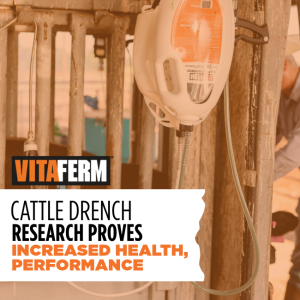
Cattle producers are the original stewards of the land. Taking care of the land helps provide valuable nutrients to their cattle, which in turn provides safe, wholesome beef for the world. Not only do the majority of cattle producers take great pride in taking care of their land, but they also take great pride in taking care of their animals. This is the basis for BQA or Beef Quality Assurance.
“People are prideful on how they care for their cattle. They take care of the animals the best they can, so the animals live a healthy, productive, high-performing life. In turn, those animals take care of the producers from a financial standpoint and the consumers by providing a safe and wholesome product,” said Travis Meteer, University of Illinois Extension Beef Specialist and Illinois BQA Coordinator.
BQA is a voluntary educational program for beef producers funded by the Beef Checkoff and governed by the National Cattlemen’s Beef Association. It offers cattle producers, backgrounders and feedlot operators a set of suggested guidelines on how to properly care for their animals. As consumer demand for more information has evolved, so have the BQA standards. What started as a program that reviewed injection sites and how to avoid injection site blemishes has advanced into more comprehensive strategies to help producers steer their production and management to produce safe, wholesome beef products.
“BQA gives producers a playbook. Any successful rancher or ball team coach knows what plays work, but they have documentation and are able to switch it up, too. BQA is a good playbook to go by. There are certain times some things work better than others, but overall BQA offers best management practices, or the guidelines that producers should be following anyway,” Meteer said.
Meteer conducts several in-person BQA training sessions each year across the state of Illinois, so its beef producers can stay certified. The certification lasts three years – standard across most all states. In addition to in-person trainings, producers can also receive their BQA certification online. Both methods consist of instruction and a quiz. Certification trainers are also provided training, so the program is standardized across the country.
The BQA trainings provide general information on animal care, health, nutrition and even transportation. Meteer said he also teaches a lot about pasture management, which circles back to the cattle nutrition and health. He applies the principle that healthy soils grow healthy plants; and healthy plants grow healthy cattle. In addition, cattle behavior and handing are important parts of BQA.
“Everything is so dynamic in the cattle business. The least amount of change happens on the cow-calf operation, where we might keep a cow for 10 years, and turn them out to the same place each year and handle them the same. For feedlot guys or in a stocker setting, those groups of cattle change, the pastures change, so there are lot of moving pieces in terms of how we move cattle so just understanding animal behavior is something I’m trying to talk more about. Then we apply animal behavior to handler qualities and facilities. We can have the best facility in the world, but if we don’t understand how animals respond then we won’t understand how we’re supposed to help handle them or position ourselves or what gives a positive reaction or negative reaction from animals, we can still mess up a good facility,” he said.
BQA certification is important to the producer; however, another group it is becoming increasingly important to is the packer. Several packers are requiring BQA certification to source their fed cattle supply. Meteer said the certifications must be on file directly with the packer or with the auction market the cattle are sold through.
Consumer acceptance is likely more favorable because they are more aware of how their meat is raised and are thankful for producers who take the time to become BQA certified, showing they believe in responsible, thoughtful cattle management.
“Surveys show that consumers like to know that producers are using BQA as a continuing education program, and they feel better about what they are consuming if they know how beef is raised,” Meteer said.
Taking care of animals and the land so they take care of you is care that comes full circle. To learn more about becoming BQA certified in your specific state or online, visit BQA Certification for more information.


